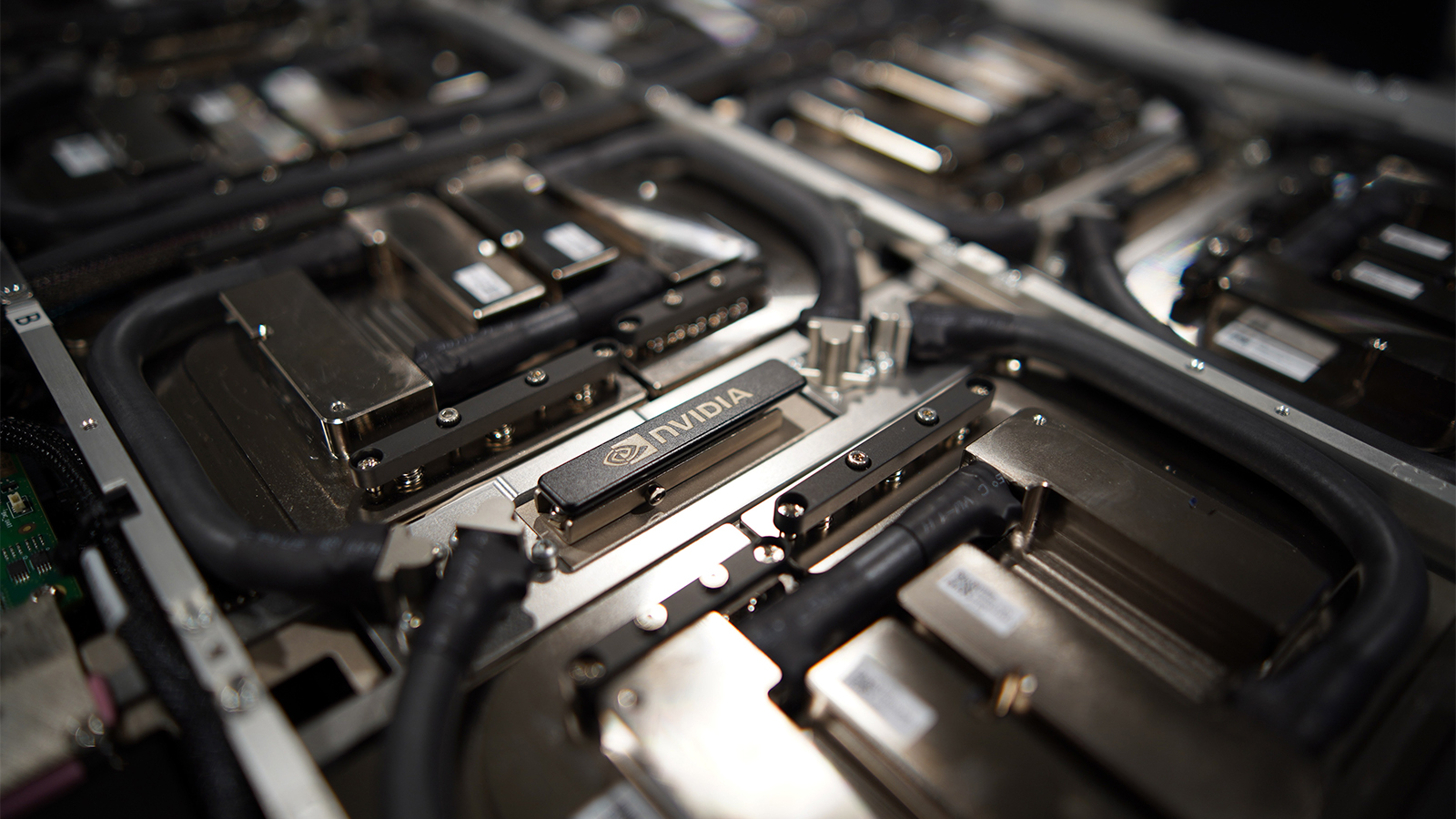Nvidia says 'We never deprive American customers in order to serve the rest of the world' — company says GAIN AI Act addresses a problem that doesn't exist
Sales to American companies totaled 49.9% in FY2024

The bill, which aimed to regulate shipments of AI GPUs to adversaries and prioritize U.S. buyers, as proposed by U.S. senators earlier this week, made quite a splash in America. To a degree, Nvidia issued a statement claiming that the U.S. was, is, and will remain its primary market, implying that no regulations are needed for the company to serve America.
"The U.S. has always been and will continue to be our largest market," a statement sent to Tom's Hardware reads. "We never deprive American customers in order to serve the rest of the world. In trying to solve a problem that does not exist, the proposed bill would restrict competition worldwide in any industry that uses mainstream computing chips. While it may have good intentions, this bill is just another variation of the AI Diffusion Rule and would have similar effects on American leadership and the U.S. economy."
Earlier this week, U.S. legislators introduced the GAIN AI Act of 2025 as part of their defense policy package, aiming to restrict the export of advanced AI GPUs and prioritize access for domestic buyers. If passed into law, this measure would enforce strict export licensing conditions for AI accelerators to D:5 countries of concern (read: China), particularly targeting sales to China and nations closely aligned with it.
Indeed, according to Nvidia's Form 10-K, sales to American companies totaled 49.9%, China accounted for 28% of the company's sales in FY2024, whereas Singapore (which is a billing address, as Nvidia puts it) totaled 18% of the company's sales.
The bill outlines specific technical thresholds to classify a chip as 'advanced,' taking a page from the Biden administration's 2023 book when it comes to benchmarks, but making them stronger when it comes to memory bandwidth. Any GPU with a total processing performance (TPP) of 2,400 or higher, a performance density over 3.2 (TPP divided by die area), or bandwidth exceeding 1.4 TB/s (DRAM), 1.1 TB/s (interconnect), or 1.7 TB/s combined would be subject to export controls. Products exceeding a TPP of 4,800 would be outright barred from export to restricted countries, which include Nvidia’s H100 (TPP 16,000) and B300 (TPP 60,000), as well as AMD’s Instinct MI308.
In accordance with new rules, exporters (i.e., AMD and Nvidia) would need to certify that U.S. buyers were given the first opportunity to purchase, that there are no pending domestic orders, and that the export will not slow local shipments or favor foreign clients with better pricing or contract terms. Additionally, they must ensure that foreign buyers will not use the hardware to compete against American firms globally. If any of these conditions are unmet, the export license must be denied.
The new export rules would obviously apply even to older AI GPUs — assuming they are still in production, of course — like Nvidia's HGX H20 or L2 PCIe, which still meet the defined performance thresholds set by the Biden administration. Although Nvidia has claimed that H20 shipments to China do not interfere with the domestic supply of H100, H200, or Blackwell chips, the new legislation could significantly formalize such limitations on transactions in the future.
Get Tom's Hardware's best news and in-depth reviews, straight to your inbox.
Follow Tom's Hardware on Google News, or add us as a preferred source, to get our up-to-date news, analysis, and reviews in your feeds. Make sure to click the Follow button!

Anton Shilov is a contributing writer at Tom’s Hardware. Over the past couple of decades, he has covered everything from CPUs and GPUs to supercomputers and from modern process technologies and latest fab tools to high-tech industry trends.
-
JamesLahey I don’t know much, but I do know that since 2019-20 it has been darn near impossible to get a good gaming GPU in the model you want when you want it.Reply
Before AI we saw images of pallets worth of GPUs going to mining companies, with the scraps being gobbled up by scalpers and the hungry hordes.
Now we have documentaries about companies in China, supposedly sanctioned, having access to 5090s that I have been unable to buy, despite being on Nvidia’s own waitlist since launch.
I don’t much care what NVidia says, but my anecdotal experience suggests it’s not so straightforward. -
razor512 "We never deprive American customers in order to serve the rest of the world..."Reply
I think they spoke with an Nvidia from another dimension where GPUs weren't perpetually out of stock, especially during the RTX 3000 days, while numerous other countries had hundreds of locations like this.
https://i.imgur.com/CpSEBfk.jpeg -
-Fran- Remember kids: when Corpo talk about "Customers" they never mean "people" or "individual citizens".Reply
Just remember (and know, for those just tuning in!) that nVidia's money is not coming from "us", the "enthusiasts". Instead they're making bazonkas money from whomever can pay for the AI hardware and nVidia is more than happy to supply that market.
"It's just business".
Regards. -
Notton Nvidia is well known to suppress supply to keep prices high.Reply
https://wccftech.com/nvidia-is-suppressing-inventory-levels-for-high-end-rtx-50-series-gpus/They would rather let chips rot in a warehouse if they deemed there was too much supply that would tank prices.
However, this bill doesn't fix any of that.
More likely than not, a "gaming" GPU will not be considered an "AI" GPU, be it from a deliberate loophole or pure ignorance.
Oh, you mean when Covid hit and all supply chains were constrained?JamesLahey said:I don’t know much, but I do know that since 2019-20 it has been darn near impossible to get a good gaming GPU in the model you want when you want it. -
hbgarlington Oh, gee, thanks NVIDIA. I guess you guys won't have an issue surviving under this new policy then with your America First sales priorities. Right? RIGHT?!Reply